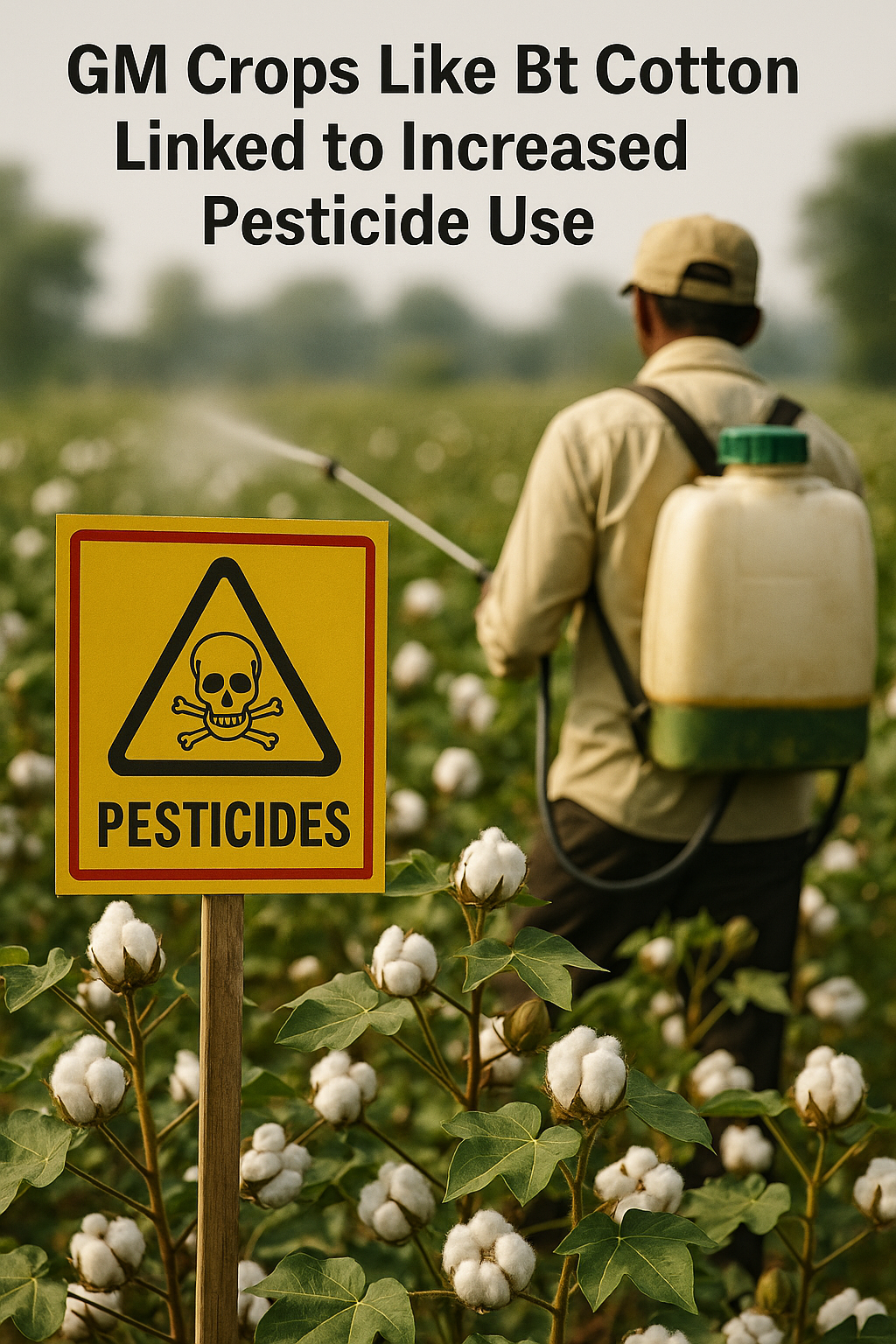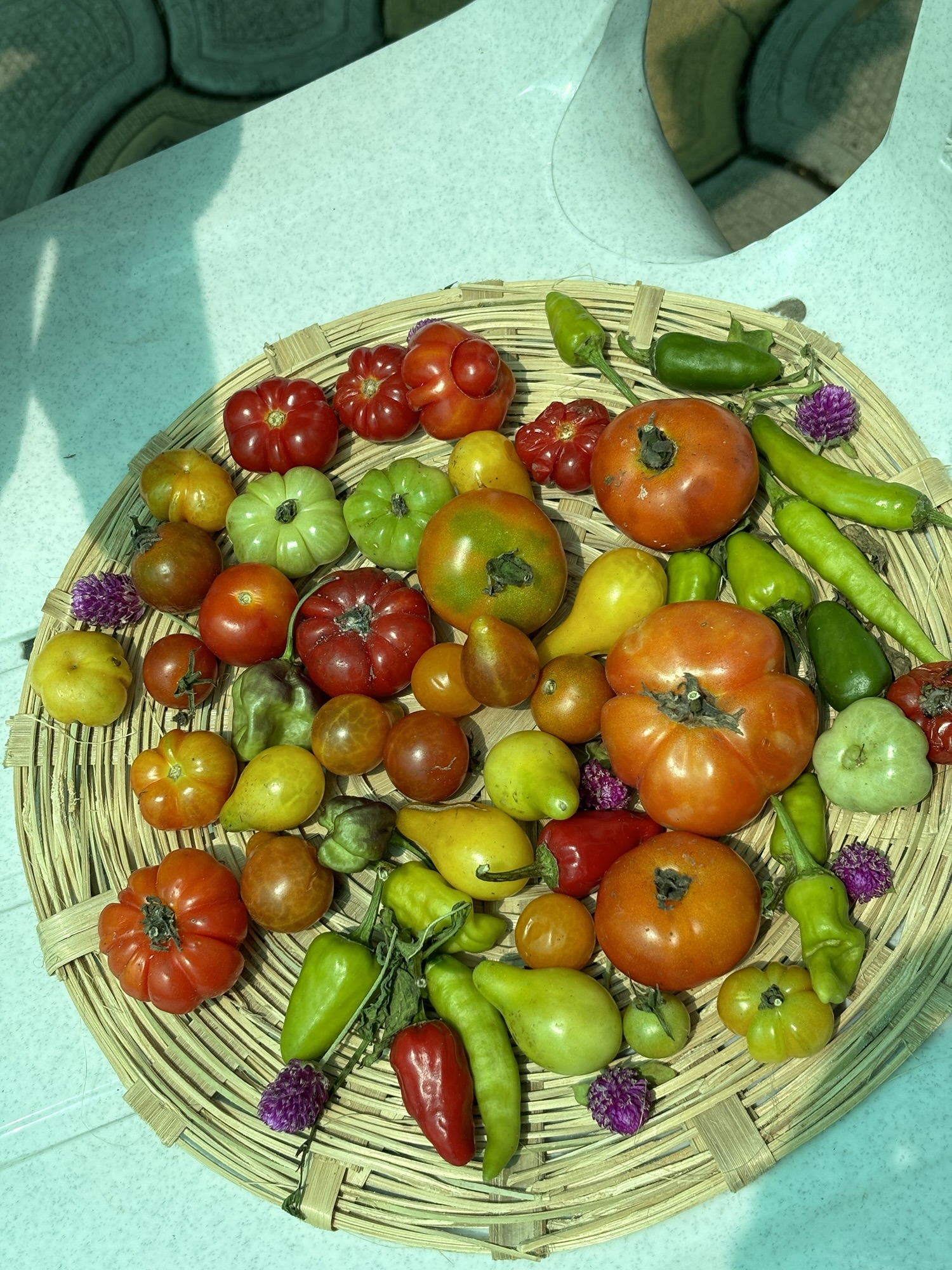Genetically modified (GM) crops like Bt cotton were introduced in India with high hopes. The idea was to reduce pesticide use and help farmers. However, a recent study shows a different reality. GM crops have led to increased reliance on pesticides over time.
The research focused on four GM crops: Bt cotton, herbicide-tolerant (HT) soybean, HT maize, and HT rapeseed (canola). It highlighted that, instead of decreasing pesticide use, GM crops have deepened the dependence on chemical inputs. Farmers in India now use more insecticides than they did in the 1990s when growing traditional cotton.
The study, titled “GM Crops and the Jevons Paradox: Induced Innovation, Systemic Effects and Net Pesticide Increases From Pesticide-Decreasing Crops,” explains this contradiction through the Jevons Paradox. This theory suggests that as we become more efficient with resources, overall consumption can actually increase.
Initially, when Bt cotton was introduced, farmers experienced lower costs and reduced pesticide use. This led to its rapid adoption. However, by 2010, the situation changed. Pests developed resistance, and new pests emerged, leading to a significant rise in insecticide applications. By 2018, Indian cotton farmers were spending 37% more on pesticides than before Bt cotton was introduced. What started as an individual advantage became a collective burden.
The study found similar trends in other countries. For instance, in the U.S., the use of glyphosate, a common herbicide, has increased dramatically. Farmers initially switched to glyphosate because it was cheaper than older herbicides. However, as more glyphosate-resistant crops were planted, the use of glyphosate skyrocketed. In 1994, only 9.2 million acres of soybeans were treated with glyphosate. By 2018, that number rose to 113 million acres.
The study also mentioned that while GM crops were supposed to increase efficiency and reduce the need for pesticides, they actually intensified the use of other chemicals like fertilizers. This increased reliance on various agrichemicals is concerning.
Despite the initial promise of GM crops, the evidence suggests that the reliance on pesticides has not decreased. Instead, it has grown stronger over the past decades. The study proposes that the rise in pesticide use is linked to the farming practices and policies that support these GM crops.
Farmers may find themselves in a cycle where they need to use more pesticides to combat resistant pests, leading to even more reliance on chemical solutions. This creates challenges for sustainable farming and poses risks to human health and the environment.
As the debate continues over the benefits and drawbacks of GM crops, it is crucial to consider the long-term impacts on farming practices. While GM crops have the potential to increase yields and reduce some costs, they may also lead to increased pesticide use and greater environmental challenges.
In conclusion, the study highlights the need for a careful assessment of GM crops. Farmers, policymakers, and consumers must weigh the benefits against the risks. As we move forward, sustainable agricultural practices should be encouraged to reduce reliance on chemicals and protect our environment.





